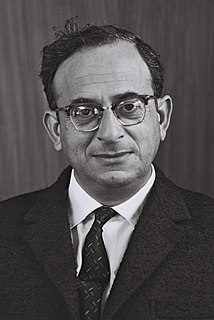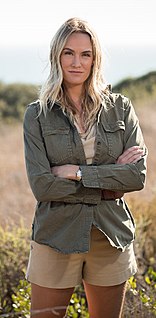A Quote by Ingrid Newkirk
Ninety-five percent of the eggs produced in America come from factory-farmed birds. Even if free-range farms were hugely more humane, the sheer number of animals raised to satisfy people's desire for eggs, meat, and milk makes it impossible for us to raise them all on small, free-range farms.
Related Quotes
Today's fishing industry supplies land farms with fish as well. Over fifty percent of the fish caught is fed to livestock on factory farms and "regular" farms. It is an ingredient in the enriched "feed meal" fed to livestock. Farm animals, like cows, who by nature are vegans, are routinely force-fed fish as well as the flesh, blood, and manure of other animals. It may take sixteen pounds of grain to make one pound of beef, but it also takes one hundred pounds of fish to make that one pound of beef.
When I was twenty-one, a friend gave me a book called Diet for a New America by John Robbins, which exposed the brutal practices of American factory farms. That, coupled with a lecture from Leonardo DiCaprio (when he was nineteen and I was twenty-one) about how such animals are kept and processed, made me lose my desire for factory farm pork and beef right there.
Most of the food crops raised in the world today are fed to livestock destined for slaughter for us to eat, and most of the water used is used to raise the food crops that are fed to those animals. It has been estimated that, because of the extraordinary amount of grain it takes to raise food animals, if we reduced the amount of meat we eat by only ten percent, that would free up enough grain to feed all the starving humans in the world. So when we choose to eat meat instead of vegetables, we are choosing to take food away from others who are hungry.

































